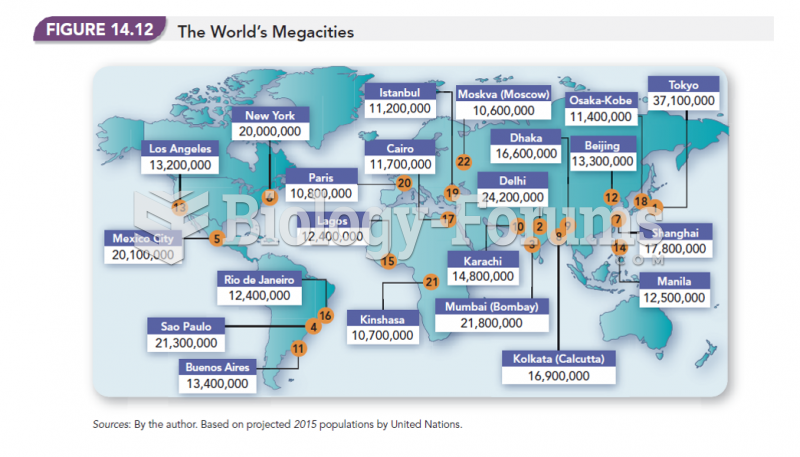|
|
|
Most childhood vaccines are 90–99% effective in preventing disease. Side effects are rarely serious.
During the twentieth century, a variant of the metric system was used in Russia and France in which the base unit of mass was the tonne. Instead of kilograms, this system used millitonnes (mt).
The term pharmacology is derived from the Greek words pharmakon("claim, medicine, poison, or remedy") and logos ("study").
The first monoclonal antibodies were made exclusively from mouse cells. Some are now fully human, which means they are likely to be safer and may be more effective than older monoclonal antibodies.
In 1886, William Bates reported on the discovery of a substance produced by the adrenal gland that turned out to be epinephrine (adrenaline). In 1904, this drug was first artificially synthesized by Friedrich Stolz.
 Young boy with characteristic nasal crease from the repeated action of the “nasal salute” caused ...
Young boy with characteristic nasal crease from the repeated action of the “nasal salute” caused ...
 In 1879 an army officer founded the Carlisle School in Pennsylvania to “civilize” young Indians. The
In 1879 an army officer founded the Carlisle School in Pennsylvania to “civilize” young Indians. The





